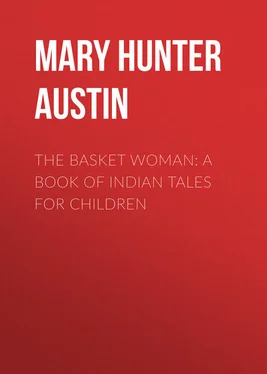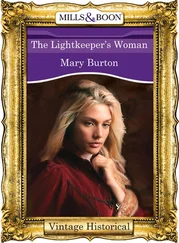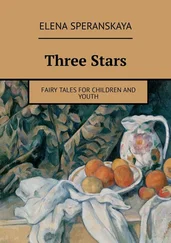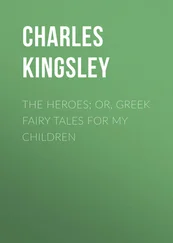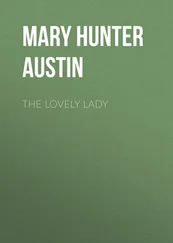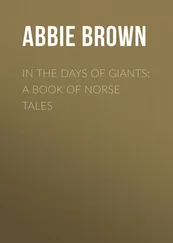Mary Austin - The Basket Woman - A Book of Indian Tales for Children
Здесь есть возможность читать онлайн «Mary Austin - The Basket Woman - A Book of Indian Tales for Children» — ознакомительный отрывок электронной книги совершенно бесплатно, а после прочтения отрывка купить полную версию. В некоторых случаях можно слушать аудио, скачать через торрент в формате fb2 и присутствует краткое содержание. Жанр: foreign_antique, foreign_prose, foreign_children, на английском языке. Описание произведения, (предисловие) а так же отзывы посетителей доступны на портале библиотеки ЛибКат.
- Название:The Basket Woman: A Book of Indian Tales for Children
- Автор:
- Жанр:
- Год:неизвестен
- ISBN:нет данных
- Рейтинг книги:4 / 5. Голосов: 1
-
Избранное:Добавить в избранное
- Отзывы:
-
Ваша оценка:
- 80
- 1
- 2
- 3
- 4
- 5
The Basket Woman: A Book of Indian Tales for Children: краткое содержание, описание и аннотация
Предлагаем к чтению аннотацию, описание, краткое содержание или предисловие (зависит от того, что написал сам автор книги «The Basket Woman: A Book of Indian Tales for Children»). Если вы не нашли необходимую информацию о книге — напишите в комментариях, мы постараемся отыскать её.
The Basket Woman: A Book of Indian Tales for Children — читать онлайн ознакомительный отрывок
Ниже представлен текст книги, разбитый по страницам. Система сохранения места последней прочитанной страницы, позволяет с удобством читать онлайн бесплатно книгу «The Basket Woman: A Book of Indian Tales for Children», без необходимости каждый раз заново искать на чём Вы остановились. Поставьте закладку, и сможете в любой момент перейти на страницу, на которой закончили чтение.
Интервал:
Закладка:
It is for this purpose of extending the background that the introductory sketches and some others are included in this collection. The Golden Fortune could be read with The White Barked Pine , and The Christmas Tree with The Crooked Fir . Any hill country or wooded district should furnish additional color, but let it be cautioned here, that though all the nature references in these tales are entirely dependable, the child is not to be made unhappy thereby. Whatever branch of school work it is found necessary to correlate with the myths, it should be in general recreative rather than instructive; for what is comprehended in the term Nature is after all not a miscellany of objects, but a state of mind set up by their happiest coincidences. The least that can be said to achieve a proper notion of a tree or a glacier is so much better than the most; a casual application to a known and neighboring circumstance goes further than any amount of explanation.
THE BASKET WOMAN
FIRST STORY
The homesteader's cabin stood in a moon-shaped hollow between the hills and the high mesa; and the land before it stretched away golden and dusky green, and was lost in a blue haze about where the river settlements began. The hills had a flowing outline and melted softly into each other and higher hills behind, until the range broke in a ragged crest of thin peaks white with snow. A clean, wide sky bent over that country, and the air that moved in it was warm and sweet.
The homesteader's son had run out on the trail that led toward the spring, with half a mind to go to it, but ran back again when he saw the Basket Woman coming. He was afraid of her, and ashamed because he was afraid, so he did not tell his mother that he had changed his mind.
"There is the mahala coming for the wash," said his mother; "now you will have company at the spring." But Alan only held tighter to a fold of her dress. This was the third time the Indian woman had come to wash for the homesteader's wife; and, though she was slow and quiet and had a pleasant smile, Alan was still afraid of her. All that he had heard of Indians before coming to this country was very frightful, and he did not understand yet that it was not so. Beyond a certain point of hills on clear days he could see smoke rising from the campoodie, and though he knew nothing but his dreams of what went on there, he would not so much as play in that direction.
The Basket Woman was the only Indian that he had seen. She would come walking across the mesa with a great cone-shaped carrier basket heaped with brushwood on her shoulders, stooping under it and easing the weight by a buckskin band about her forehead. Sometimes it would be a smaller basket carried in the same fashion, and she would be filling it with bulbs of wild hyacinth or taboose; often she carried a bottle-necked water basket to and from the spring, and always wore a bowl-shaped basket on her head for a hat. Her long hair hung down from under it, and her black eyes glittered beadily below the rim. Alan had a fancy that any moment she might pick him up with a quick toss as if he had been a bit of brushwood, and drop him over her shoulder into the great carrier, and walk away across the mesa with him. So when he saw her that morning coming down the trail from the spring, he hung close by his mother's skirts.
"You must not be afraid of her, Alan," said his mother; "she is very kind, and no doubt has had a boy of her own."
The Basket Woman showed them her white, even teeth in a smile. "This one very pretty boy," she said; but Alan had made up his mind not to trust her. He was thinking of what the teamster had said when he had driven them up from the railroad station with their belongings the day they came to their new home and found the Basket Woman spying curiously in at the cabin windows.
"You wanter watch out how you behaves yourself, sonny," said the teamster, wagging a solemn jaw, "she's likely to pack you away in that basket o' her'n one of these days." And Alan had watched out very carefully indeed.
It was not a great while after they came to the foothill claim that the homesteader went over to the campoodie to get an Indian to help at fence building, and Alan went with him, holding fast by his father's hand. They found the Indians living in low, foul huts; their clothes were also dirty, and they sat about on the ground, fat and good-natured. The dogs and children lay sleeping in the sun. It was all very disappointing.
"Will they not hurt us, father?" Alan had said at starting.
"Oh, no, my boy; you must not get any such notion as that," said the homesteader; "Indians are not at all now what they were once."
Alan thought of this as he looked at the campoodie, and pulled at his father's hand.
"I do not like Indians the way they are now," he said; and immediately saw that he had made a mistake, for he was standing directly in front of the Basket Woman's hut, and as she suddenly put her head out of the door he thought by the look of her mysterious, bright eyes that she had understood. He did not venture to say anything more, and all the way home kept looking back toward the campoodie to see if anything came of it.
"Why do you not eat your supper?" said his mother. "I am afraid the long walk in the hot sun was too much for you." Alan dared not say anything to her of what troubled him, though perhaps it would have been better if he had, for that night the Basket Woman came for him.
She did not pick him up and toss him over her shoulder as he expected; but let down the basket, and he stepped into it of his own accord. Alan was surprised to find that he was not so much afraid of her after all.
"What will you do with me?" he said.
"I will show you Indians as they used to be," said she.
Alan could feel the play of her strong shoulders as they went out across the lower mesa and began to climb the hills.
"Where do you go?" said the boy.
"To Pahrump, the valley of Corn Water. It was there my people were happiest in old days."
They went on between the oaks, and smelled the musky sweet smell of the wild grapevines along the water borders. The sagebrush began to fail from the slopes, and buckthorn to grow up tall and thicker; the wind brought them a long sigh from the lowest pines. They came up with the silver firs and passed them, passed the drooping spruces, the wet meadows, and the wood of thimble-cone pines. The air under them had an earthy smell. Presently they came out upon a cleared space very high up where the rocks were sharp and steep.
"Why are there no trees here?" asked Alan.
"I will tell you about that," said the Basket Woman. "In the old flood time, and that is longer ago than is worth counting, the water came up and covered the land, all but the high tops of mountains. Here then the Indians fled and lived, and with them the animals that escaped from the flood. There were trees growing then over all the high places, but because the waters were long on the earth the Indians were obliged to cut them down for firewood. Also they killed all the large animals for food, but the small ones hid in the rocks. After that the waters went down; trees and grass began to grow over all the earth, but never any more on the tops of high mountains. They had all been burned off. You can see that it is so."
From the top of the mountain Alan could see all the hills on the other side shouldering and peering down toward the happy valley of Corn Water.
"Here," said the Basket Woman, "my people came of old time in the growing season of the year; they planted corn, and the streams came down from the hills and watered it. Now we, too, will go down."
They went by a winding trail, steep and stony. The pines stood up around and locked them closely in.
Читать дальшеИнтервал:
Закладка:
Похожие книги на «The Basket Woman: A Book of Indian Tales for Children»
Представляем Вашему вниманию похожие книги на «The Basket Woman: A Book of Indian Tales for Children» списком для выбора. Мы отобрали схожую по названию и смыслу литературу в надежде предоставить читателям больше вариантов отыскать новые, интересные, ещё непрочитанные произведения.
Обсуждение, отзывы о книге «The Basket Woman: A Book of Indian Tales for Children» и просто собственные мнения читателей. Оставьте ваши комментарии, напишите, что Вы думаете о произведении, его смысле или главных героях. Укажите что конкретно понравилось, а что нет, и почему Вы так считаете.
